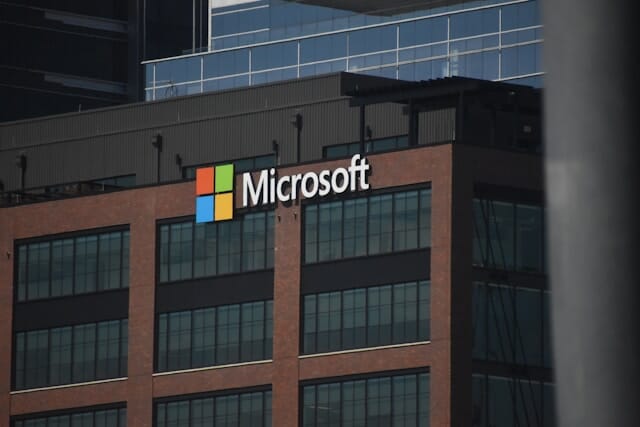In a bold move against escalating cyber threats, Microsoft has struck a significant blow to online fraudsters. The tech giant recently seized approximately 340 websites connected to a sophisticated phishing subscription service originating from Nigeria. This operation, known as RaccoonO365, has been rapidly expanding since its launch in July 2024, enabling even novice cybercriminals to launch large-scale attacks targeting Microsoft 365 credentials. By obtaining a court order from the U.S. District Court for the Southern District of New York, Microsoft's Digital Crimes Unit (DCU) coordinated the takedown, disrupting the infrastructure that facilitated the theft of over 5,000 user credentials across 94 countries. This action not only halts immediate threats but also sends a strong message to global cybercriminals.
Understanding the Nigerian Phishing Operation Behind RaccoonO365
The heart of this phishing scheme lies in RaccoonO365, a phishing-as-a-service platform tracked by Microsoft as Storm-2246. Led by Joshua Ogundipe, a Nigeria-based individual accused of developing most of the code, the service operated through a private Telegram channel boasting over 850 subscribers. Subscribers paid in cryptocurrency for access, generating at least $100,000 in revenue for Ogundipe and his associates since inception. This model democratized cybercrime, allowing users with minimal technical skills to deploy phishing campaigns mimicking trusted brands like Microsoft.
RaccoonO365's toolkit included features for creating authentic-looking emails, attachments, and fake login pages designed to harvest usernames, passwords, and session cookies. These elements bypassed multi-factor authentication (MFA), a common security measure, by capturing session data in real-time. The platform supported massive email blasts, with each subscription permitting up to 9,000 phishing emails per day. Experts estimate this could have resulted in hundreds of millions of malicious messages flooding inboxes worldwide.
One notable campaign involved tax-themed phishing emails sent between February 12 and 28, 2025, targeting over 2,300 organizations, primarily in the United States. These emails preyed on seasonal anxieties around tax filings, tricking recipients into clicking links or opening attachments that led to bogus Microsoft O365 login pages. A significant portion of targets were based in New York City, highlighting a focused regional strategy.
Impact of Microsoft Phishing Seizure on Global Cybersecurity
The ramifications of RaccoonO365's activities extend far beyond stolen credentials. With over 5,000 Microsoft accounts compromised, victims spanned 94 countries and various industries, including healthcare, where at least 20 to 25 organizations were affected. Phishing attacks like these often serve as entry points for more severe threats, such as malware deployment or ransomware infections. In healthcare, this poses direct risks to public safety, potentially disrupting hospital operations and compromising patient data.
Microsoft's intervention, in collaboration with Cloudflare and the U.S. Secret Service, disrupted the backend infrastructure hidden behind Cloudflare's services. Chainalysis assisted in tracing cryptocurrency transactions, solidifying the attribution to Ogundipe. This multi-stakeholder approach underscores the complexity of modern cyber takedowns, requiring legal, technical, and investigative expertise.
Broader implications reveal a troubling trend: the proliferation of accessible cybercrime tools. As Steven Masada, assistant general counsel for Microsoft's DCU, stated, "The rapid development, marketing, and accessibility of services like RaccoonO365 indicate that we are entering a troubling new phase of cybercrime where scams and threats are likely to multiply exponentially." This accessibility lowers the barrier for entry, enabling "cybercrime as a service" models that amplify global threats.
How RaccoonO365 Phishing Service Operated and Evaded Detection
Delving deeper into the mechanics, RaccoonO365 employed advanced evasion techniques to stay under the radar. Its codebase featured anti-analysis functions, user-agent filtering, security vendor evasion, network-level blocking, and dynamic traffic routing. These allowed the platform to adapt to detection efforts, making it resilient against standard antivirus tools.
Phishing emails often contained malicious attachments, links, or QR codes that redirected users to counterfeit Microsoft login sites. Once credentials were entered, attackers captured not just passwords but also session cookies, granting persistent access without triggering MFA prompts. This adversary-in-the-middle tactic mirrored other platforms like VoidProxy, which targets Microsoft 365 and Google accounts similarly.
The service's marketing on Telegram emphasized ease of use, attracting a diverse user base. Subscriptions ranged from basic to premium, with higher tiers offering enhanced features like AI-powered scaling for greater efficiency. Despite operational security lapses noted by experts, the group's effectiveness was undeniable, as evidenced by the scale of credential theft.
Microsoft's DCU investigators went undercover, engaging directly with the threat actors to acquire phishing kits and gather intelligence. This proactive stance highlights the evolving role of private sector entities in combating cybercrime, often filling gaps left by international law enforcement challenges.
Lessons from the Nigerian Phishing Operation Takedown
This seizure offers valuable insights for individuals and organizations alike. First, awareness of social engineering remains crucial. Phishing relies on human error, so training programs emphasizing verification of email sources and avoiding suspicious links can mitigate risks. Implementing robust MFA, beyond basic methods, and using hardware keys where possible adds layers of protection.
Organizations should adopt risk-based access controls, restricting sensitive apps to managed devices and enforcing IP session binding for administrative functions. Regular audits of cloud services and prompt response to breach indicators are essential. In healthcare and other critical sectors, where downtime can have life-threatening consequences, investing in advanced threat detection tools is non-negotiable.
On a policy level, Masada called for governments to align cybercrime laws and expedite cross-border prosecutions. Current patchwork regulations allow criminals in jurisdictions like Nigeria to operate with relative impunity, exploiting legal loopholes. International cooperation, similar to the collaboration in this case, could deter future operations.
Future Outlook After Microsoft Seizes Phishing Websites
While this takedown is a victory, Microsoft anticipates attempts to rebuild RaccoonO365 or similar services. Cybercriminals are adaptable, and the rise of AI in phishing tools could accelerate threats. Recently, the group advertised AI enhancements to scale operations further, signaling an arms race in cybersecurity.
For users, staying vigilant is key. Monitor accounts for unusual activity, use password managers, and enable alerts for login attempts. Microsoft's action protects millions, but personal responsibility complements corporate efforts.
In conclusion, Microsoft's seizure of 340 websites marks a pivotal moment in the fight against Nigerian-based phishing operations like RaccoonO365. By disrupting this fast-growing threat, the company not only safeguards credentials but also raises awareness of evolving cyber risks. As cybercrime becomes more accessible, collective action from tech firms, governments, and users will be vital to staying ahead.

